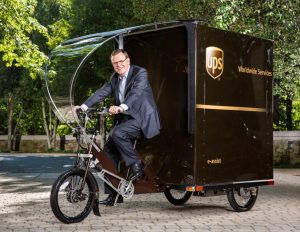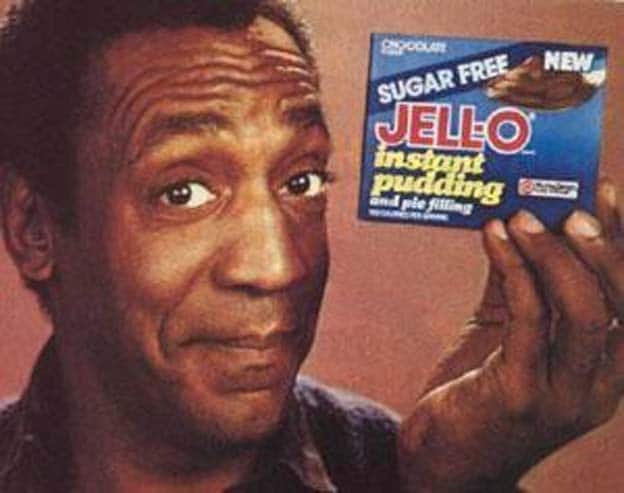The international community shares a common ambition of combatting the critical issue that is of global warming. It is a crisis that increasingly affects everyone and their environment. As consequence, people have begun taking immediate action to reduce carbon dioxide emissions, some countries making it a top priority. Hamburg, Germany has thus banned large trucks from its city center to realize its twenty-year plan of a “greener” vehicle-free city.
The world’s largest package delivery company, The United Parcel Service (UPS), proudly announced that it will utilize an “electric assist cargo tricycle”. Nikki Abbott successfully outlines the phenomenal benefits of the UPS Green Line, such as decreasing carbon footprint whilst delivering packages at a much faster rate. I fully support Nikki’s positive outlook towards UPS’s new system. The Green Line still abides by the city’s regulations and is able to deliver packages in congested areas that other delivery trucks (competitors) are unable to. The company will function at a comparable rate and efficiently level with the tricycle similarly if they were to use UPS’s traditional delivery trucks. The firm wishes to reduce its “carbon intensity” (amount of pollution emitted per package delivered) by 20 percent by the end of 2020. Through the use of their eco-friendly Green Line innovation, the company will potentially be able to attain their future goal.
I strongly believe that UPS’s Green Line is an outstanding example of business ethics. The company created a system that appealed to consumers, assisted their personal carbon-footprint goal and took a smart step forward to increasing their profitability. This suggestively disproves the common correlation of an inefficient business to an ethical business. With a system as successful as the Green Line, UPS should most definitely look into expansion to their other operating countries.
The UPS Green Line is an innovation that has provided an advantageous edge for the company towards their competitors and has effectively paved the way to a global environmentally-driven future.
Word Count: 322
__________________________________________________________________________________________
Works Cited
Abbott, Nicola. “Nicola (Nikki) Abbott’s Blog | Just Another UBC Blogs Site.” Nicola Nikki Abbotts Blog. N.p., 1 Oct. 2016. Web. 31 Oct. 2016. <https://blogs.ubc.ca/nicolaabbott/2016/10/01/blog-post-2/>.
Muller, Joann. “UPS Is Conducting A Vast Rolling Lab Experiment To Create The Clean Truck Of The Future.” Forbes. Forbes Magazine, 30 Sept. 2016. Web. 31 Oct. 2016. <http://www.forbes.com/sites/joannmuller/2016/09/30/ups-employs-vast-rolling-laboratory-to-discover-clean-truck-of-the-future/#233aa1c81f31>.



